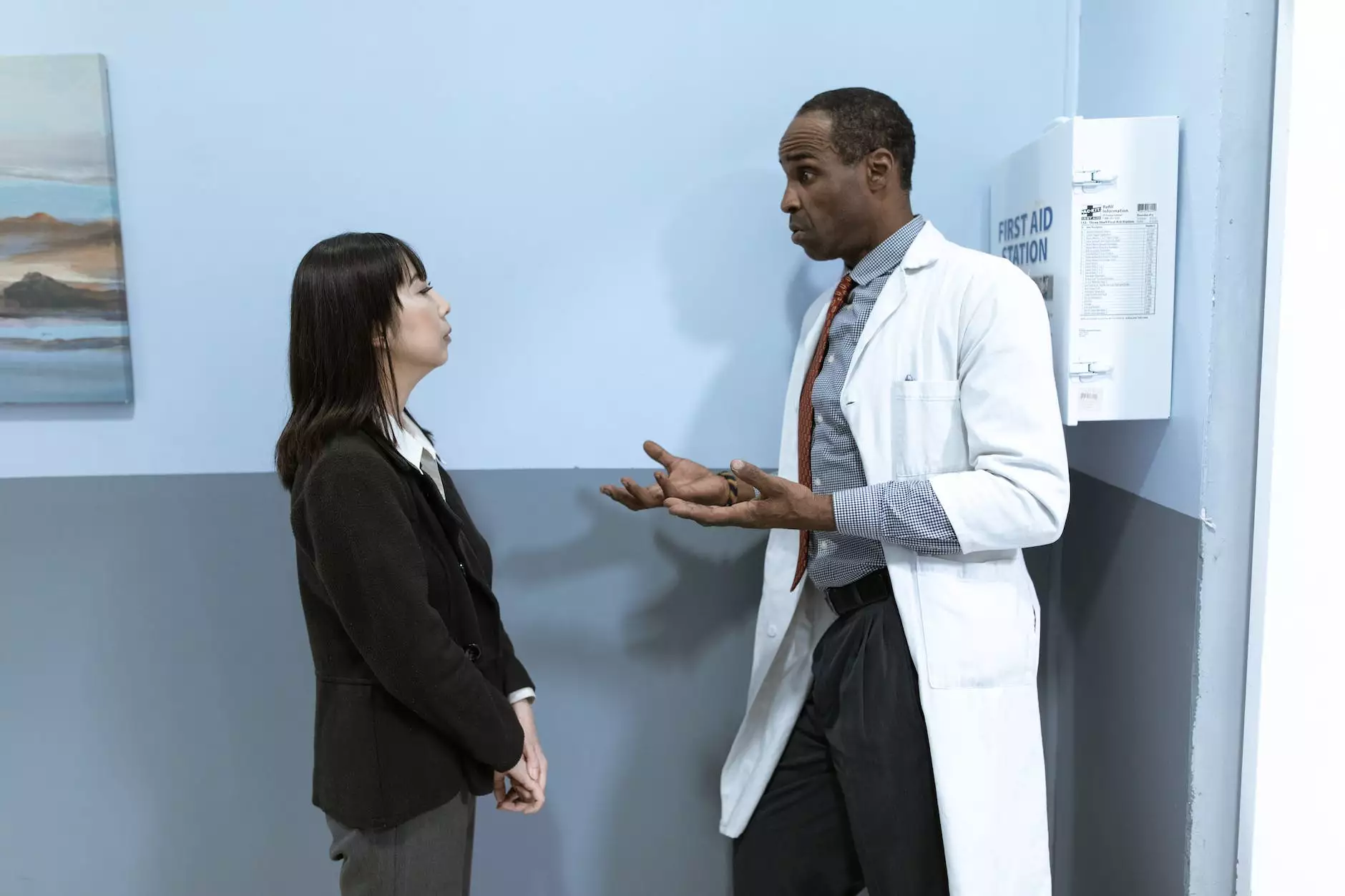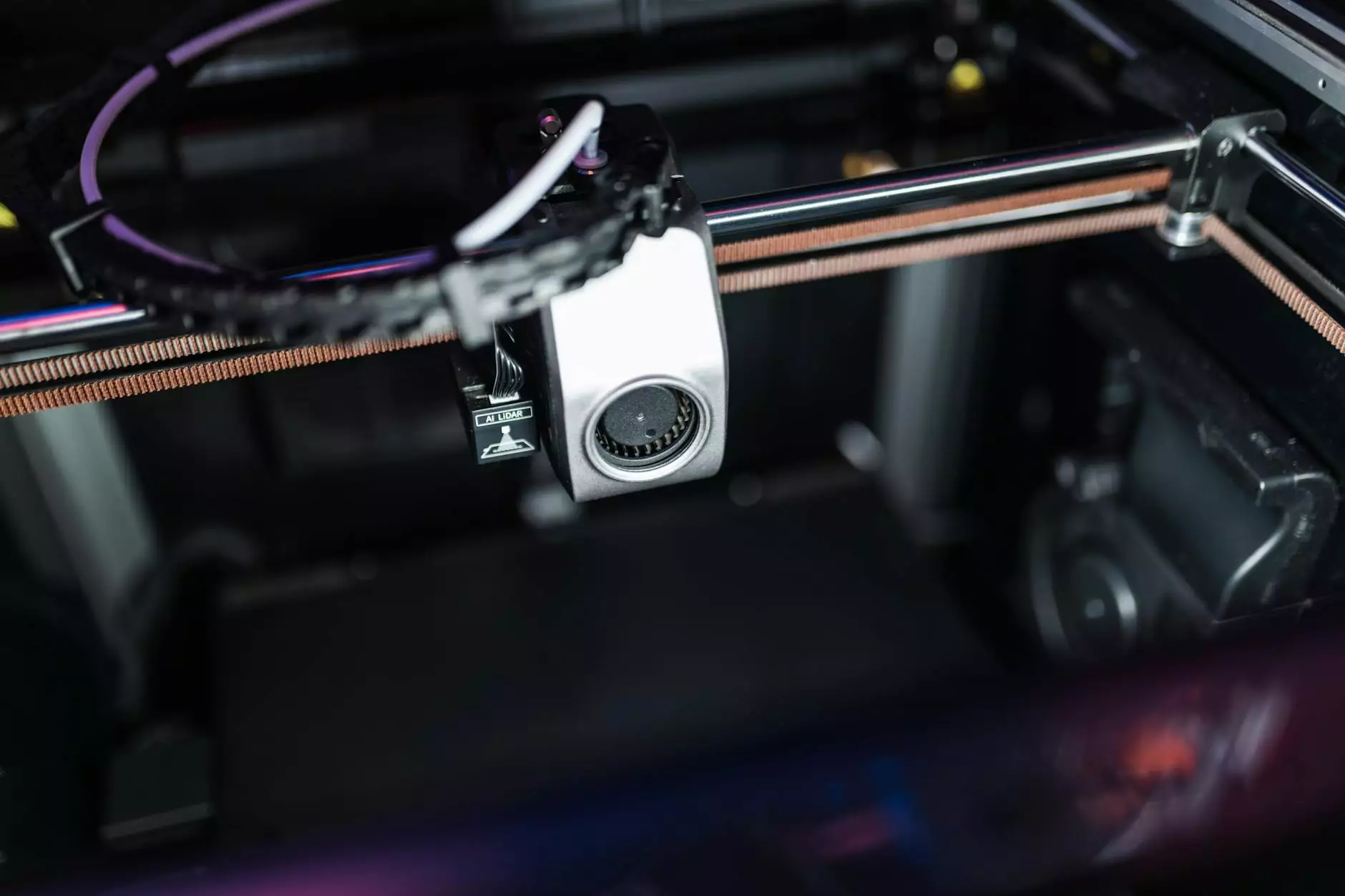Comprehensive Guide to Finding the Right Lung Doctor

When it comes to your health, finding the right specialist is crucial. If you're experiencing breathing issues or other lung-related symptoms, consulting with a specialized lung doctor is an essential step towards recovery. In this guide, we will delve into various aspects of lung health, the role of lung doctors, and how to choose the best healthcare provider for your needs.
Why You Need a Specialized Lung Doctor
Your lungs play a vital role in your overall health by providing oxygen to your body and removing carbon dioxide. When lung health is compromised, it can lead to serious health complications. Consulting a lung doctor, also known as a pulmonologist, is critical for evaluating, diagnosing, and treating a variety of respiratory conditions. Below are some common reasons people seek the expertise of a lung doctor:
- Persistent Cough: A cough that lasts more than a few weeks may indicate a serious underlying condition.
- Breathing Difficulties: Shortness of breath or wheezing can be a sign of asthma, COPD, or other lung diseases.
- Lung Infections: Frequent infections such as pneumonia or bronchitis require specialized care.
- Chronic Conditions: Patients with chronic conditions such as emphysema or cystic fibrosis need ongoing management.
- Screening for Lung Cancer: High-risk individuals should undergo regular screenings for early detection.
Understanding Lung Diseases
Lung diseases are varied in nature and can affect individuals differently. Here are some of the most common lung diseases a lung doctor addresses:
1. Asthma
Asthma is a chronic condition characterized by inflammation and narrowing of the airways, leading to breathing difficulties. Symptoms can include wheezing, coughing, chest tightness, and shortness of breath. A lung doctor can provide treatment plans that include inhalers, medications, and lifestyle recommendations.
2. Chronic Obstructive Pulmonary Disease (COPD)
COPD is a progressive lung disease that makes it hard to breathe. It is often caused by long-term exposure to irritants, such as cigarette smoke. A specialist can help manage the symptoms with various treatments, including bronchodilators and pulmonary rehabilitation.
3. Lung Cancer
Lung cancer remains a leading cause of cancer-related deaths worldwide. Early detection is crucial, and a lung doctor plays an instrumental role in screening, diagnosis, and treatment options, which may include surgery, chemotherapy, or radiation therapy.
4. Pulmonary Fibrosis
This disease involves the thickening and stiffening of lung tissue, leading to breathing difficulties. A lung doctor can recommend therapies aimed at slowing the progression of the disease and improving quality of life.
5. Sleep Apnea
A sleep disorder where breathing repeatedly stops and starts during sleep. A lung doctor can work alongside other specialists to provide comprehensive evaluations and treatments that may include continuous positive airway pressure (CPAP) therapy.
Finding the Right Lung Doctor
Selecting a qualified lung doctor is essential for navigating the complexities of lung diseases. Here are key factors to consider:
1. Credentials and Experience
Ensure your chosen lung doctor is board-certified in pulmonary medicine. Experience in treating specific lung conditions relevant to your symptoms is crucial. Check their background, including education and years in practice.
2. Patient Reviews and Testimonials
Research online reviews from previous patients to gauge their experiences. Websites like Healthgrades can provide insights into a doctor's reputation.
3. Accessibility and Location
Consider the location of the practice and whether they offer flexible scheduling. Easy access to your healthcare provider is important in managing any chronic condition.
4. Communication Style
Your lung doctor should be approachable and open to questions. Good communication is key to receiving quality care. Ensure you feel comfortable discussing your symptoms and concerns.
5. Treatment Philosophy
Different doctors may have varying approaches to treatment. Understanding their philosophy can help you feel aligned with their methods, whether they are more interventional or conservative in their approach.
What to Expect During Your Visit to a Lung Doctor
Your first visit to a lung doctor involves a comprehensive examination. Here’s what generally happens:
- Medical History Review: The doctor will discuss your medical history, family history, and any current medications.
- Physical Examination: This includes listening to your lungs with a stethoscope and checking for any signs of respiratory distress.
- Diagnostic Tests: You may undergo tests such as spirometry, chest X-rays, CT scans, or blood tests to aid in diagnosis.
- Treatment Plan: Based on the findings, a personalized treatment plan will be developed, which may include medications, lifestyle changes, or referrals to other specialists.
Advanced Treatments Available from a Lung Doctor
Modern medicine offers a range of advanced treatments for lung diseases, which a lung doctor at Hello Physio can provide, including:
1. Medications
Depending on the condition, medications such as bronchodilators, steroids, or antibiotics may be prescribed to manage symptoms.
2. Pulmonary Rehabilitation
This is a tailored program focusing on exercise training, nutritional advice, and education to improve lung health and overall quality of life.
3. Oxygen Therapy
For patients with severe respiratory issues, supplemental oxygen may be used to ensure adequate oxygen levels in the blood.
4. Surgical Options
Surgical interventions might be necessary for certain lung conditions, including lobectomy (removal of a lung lobe) or lung transplants for end-stage diseases.
5. Clinical Trials
Participating in clinical trials can provide access to cutting-edge treatments not yet widely available. Your lung doctor can inform you about ongoing studies that might be relevant to your condition.
Conclusion
Finding the right lung doctor is vital for maintaining optimal lung health and effectively managing respiratory conditions. By understanding the complexities of lung diseases and the advanced treatment options available, you can take proactive steps towards better respiratory health. Remember, at Hello Physio, our team is dedicated to providing top-notch care tailored to your unique health needs.
For further information about lung health or to schedule an appointment with a qualified lung doctor, visit our website at Hello Physio today.









